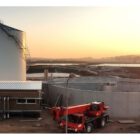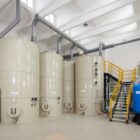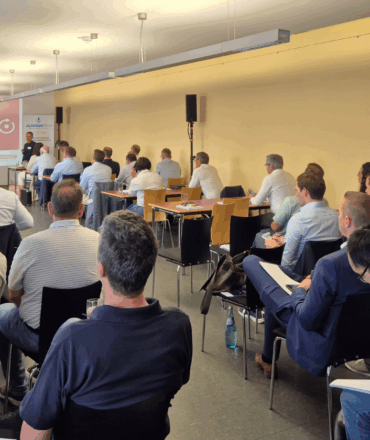Die Industrieabwasserbehandlung ist eine anspruchsvolle Aufgabe, die verstärkt auf Nachhaltigkeit ausgerichtet ist. In diesem Artikel betrachten wir Herausforderungen und Lösungen für nachhaltige Abwasserbehandlung in Unternehmen. Von Wasserrückgewinnung bis hin zu energieeffizienten Technologien gibt es vielfältige Ansätze. Doch welche Maßnahmen sind am besten? Und wie bleiben Unternehmen gesetzeskonform und umweltfreundlich? Wir bieten Empfehlungen und Praxistipps für nachhaltige Abwasserbehandlung in Ihrem Betrieb. Erfahren Sie, wie wir gemeinsam zu einer umweltfreundlicheren Zukunft beitragen können.
Inhaltsverzeichnis
Bedeutung von Nachhaltigkeit in der Abwasserbehandlung
Die Bedeutung von Nachhaltigkeit in der Abwasserbehandlung ist in den letzten Jahren stark gestiegen. Immer mehr Unternehmen sind sich bewusst, dass sie eine Verantwortung gegenüber der Umwelt und den kommenden Generationen haben. Die Abwasserbehandlung ist ein wichtiger Aspekt, um diese Verantwortung wahrzunehmen. Durch eine nachhaltige Abwasserbehandlung können Unternehmen nicht nur ihre Umweltauswirkungen minimieren, sondern auch Ressourcen effizienter nutzen und Kosten sparen.
Nachhaltige Abwasserbehandlung umfasst verschiedene Aspekte, wie die Vermeidung von Abwasser, die Wiederverwendung von Wasser und die Reduzierung von Schadstoffemissionen. Auch die Energieeffizienz der Abwasserbehandlungsanlage spielt eine wichtige Rolle. Durch den Einsatz von erneuerbaren Energien und die Optimierung der Prozesse können Unternehmen ihre Energiekosten senken und gleichzeitig ihre CO2-Emissionen reduzieren.
Es ist auch wichtig zu betonen, dass Nachhaltigkeit in der Abwasserbehandlung nicht nur eine moralische Verpflichtung ist, sondern auch gesetzliche Vorgaben erfüllt. Unternehmen müssen sich an Umwelt- und Abfallgesetze halten und können bei Nichteinhaltung mit hohen Strafen belegt werden.
Eine nachhaltige Abwasserbehandlung bietet Unternehmen also nicht nur die Möglichkeit, ihre Umweltauswirkungen zu minimieren, sondern auch ihre Wettbewerbsfähigkeit zu steigern und gesetzliche Vorgaben zu erfüllen. Es ist ein wichtiger Aspekt, den Unternehmen bei der Planung und Optimierung ihrer Abwasserbehandlungsanlagen berücksichtigen sollten.
Herausforderungen der Nachhaltigkeit in der Abwasserbehandlung
Energieeffizienz
Die Herausforderung besteht darin, die Abwasserreinigung so zu gestalten, dass sie möglichst energieeffizient ist, ohne dabei an Reinigungswirkung einzubüßen. Denn immerhin machen Energiekosten in der Abwasserreinigung einen großen Teil der Betriebskosten aus.
Eine Lösung, um die Energieeffizienz zu verbessern, besteht in der Optimierung von Prozessen und Technologien. Durch den Einsatz moderner und energieeffizienter Anlagen kann der Energieverbrauch deutlich gesenkt werden. Aber auch eine intelligente Steuerung und Überwachung von Prozessen kann dazu beitragen, dass Energie nur dann eingesetzt wird, wenn sie wirklich benötigt wird.
Ein weiterer Ansatzpunkt ist die Nutzung von erneuerbaren Energien. So kann beispielsweise Solarstrom zur Versorgung von elektrischen Anlagen genutzt werden. Auch die Umwandlung von Abwasser in Biogas durch den Einsatz von Mikroorganismen ist eine Möglichkeit, Energie zu gewinnen und gleichzeitig Abwasser zu reinigen.
Wasserrecycling und Wiederverwendung
Wasser ist ein lebenswichtiges Element, das auf unserem Planeten begrenzt vorhanden ist. Die steigende Nachfrage nach Trinkwasser und die zunehmende Verknappung dieser Ressource, stellt die Industrie vor die Herausforderung, ihre Wassermanagement zu optimieren und effektiv zu nutzen. Eine der Lösungen besteht darin, auf das Recycling und die Wiederverwendung von Abwasser zu setzen.
Das Recycling von Abwasser ermöglicht es, Wasserressourcen zu schonen, indem es behandelt und wiederverwendet wird. Es ist eine kosteneffektive Option, da die Wiederverwendung von Abwasser als Prozesswasser die Notwendigkeit verringert, auf teures Stadtwasser zurückzugreifen.
In der Industrieabwasserreinigung werden verschiedene Technologien eingesetzt, um das Abwasser zu behandeln und es wieder in den Produktionsprozess zu integrieren. Je nach Grad der Verunreinigung des Abwassers und nach den Anforderungen an die Reinheit des behandelten Wassers kommen unterschiedliche Verfahren zum Einsatz. Diese müssen kundenspezifisch und Lösungsorientiert ausgewählt werden.
Beispielsweise werden in der Lebensmittelindustrie oftmals biologische Behandlungssysteme mit Umkehrosmoseanlagen und Oxidationsanlagen kombiniert. Diese Art von Kombinationsverfahren ermöglicht die Wiedergewinnung von Reinigungswasser aus Abwasser.
Die Wiederverwendung von Abwasser hat auch den Vorteil, dass sie dazu beitragen kann, die Umweltbelastung zu reduzieren. Durch die Reduzierung der Abwassermenge, die in die Umwelt gelangt, wird das Risiko von Wasserverschmutzung und die damit verbundenen Auswirkungen auf die Ökosysteme minimiert.
Gesetzliche Vorgaben und Umweltverträglichkeit
In der Industrieabwasserreinigung sind gesetzliche Vorgaben und Umweltverträglichkeit von großer Bedeutung. Unternehmen müssen sicherstellen, dass ihre Abwasserbehandlungsanlagen die geltenden Vorschriften einhalten und die Umweltbelastung minimieren. Die Einhaltung von Gesetzen und Vorschriften ist nicht nur eine rechtliche Verpflichtung, sondern auch eine Verantwortung gegenüber der Umwelt und der Gesellschaft.
Die Umweltverträglichkeit von Abwasserbehandlungsanlagen hängt von verschiedenen Faktoren ab, wie der Art des behandelten Abwassers, der eingesetzten Technologie und den verwendeten Chemikalien. Die Einhaltung der vorgeschriebenen Grenzwerte für Schadstoffe wie organische Verbindungen, Schwermetalle und Stickstoffverbindungen ist entscheidend, um eine unkontrollierte Freisetzung von Schadstoffen in die Umwelt zu verhindern.
Lösungen für eine nachhaltige Abwasserbehandlung
Neue Technologien für die Abwasserbehandlung
Eine nachhaltige Abwasserbehandlung wird immer wichtiger, um die Umwelt zu schützen und Ressourcen zu schonen. Innovative Technologien bieten hier Lösungen, um die Abwasserbehandlung effektiver und nachhaltiger zu gestalten. So gibt es beispielsweise Verfahren zur Membranfiltration, bei denen das Abwasser durch feine Membranen geleitet wird, um Schadstoffe und Schmutzpartikel herauszufiltern. Auch Verfahren zur biologischen Abwasserbehandlung, wie beispielsweise die Biogasgewinnung durch anaerobe Mikroorganismen.
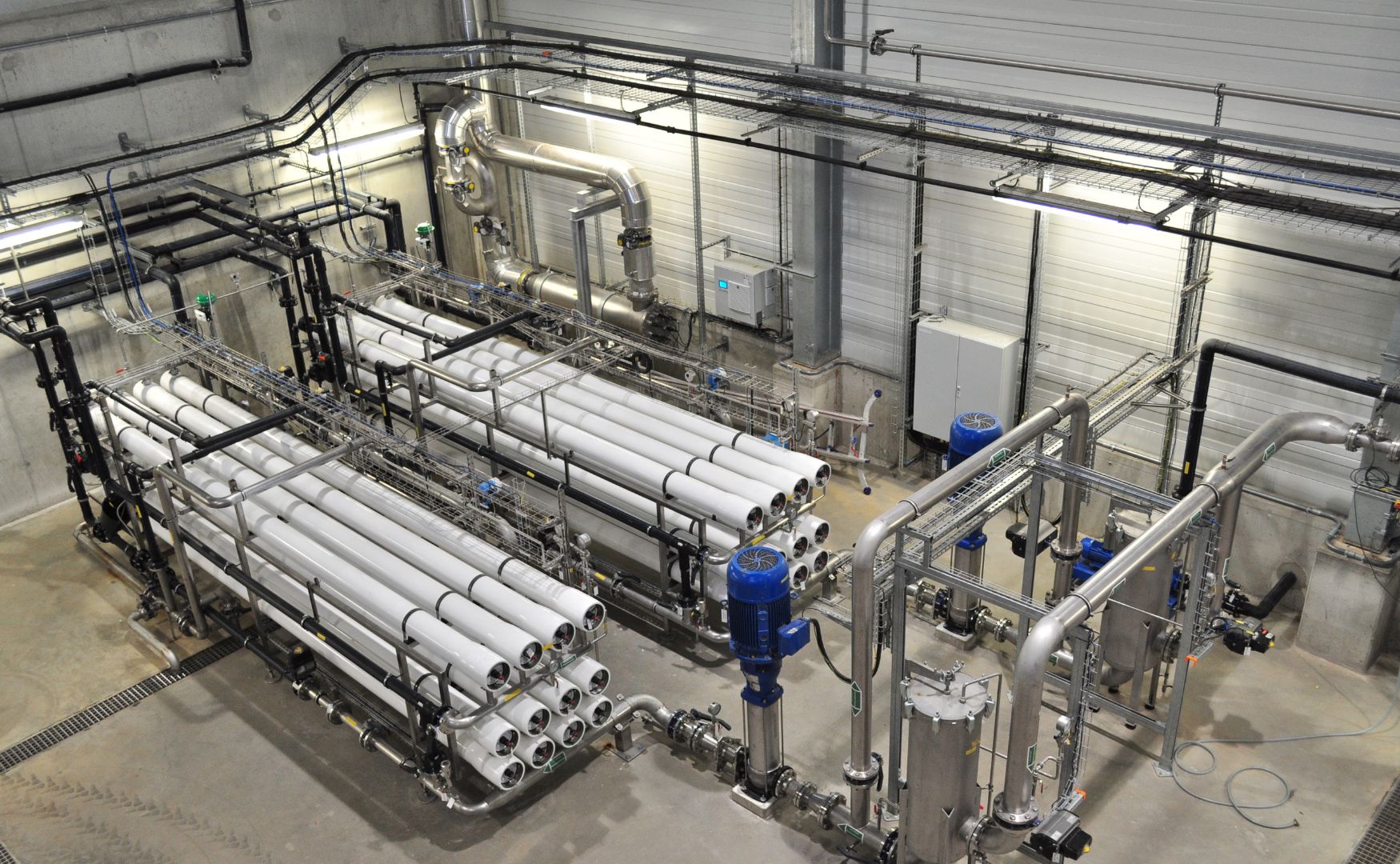
Foto: ALMA BHU BiosS-Treat (zum Produkt)
Eine weitere Technologie, die in der Abwasserbehandlung eingesetzt werden kann, ist die Ozonbehandlung. Dabei wird das Abwasser mit Ozon angereichert, um Schadstoffe zu zerstören und Keime abzutöten. Auch die Verwendung von UV-Licht zur Desinfektion des Abwassers gewinnt zunehmend an Bedeutung.
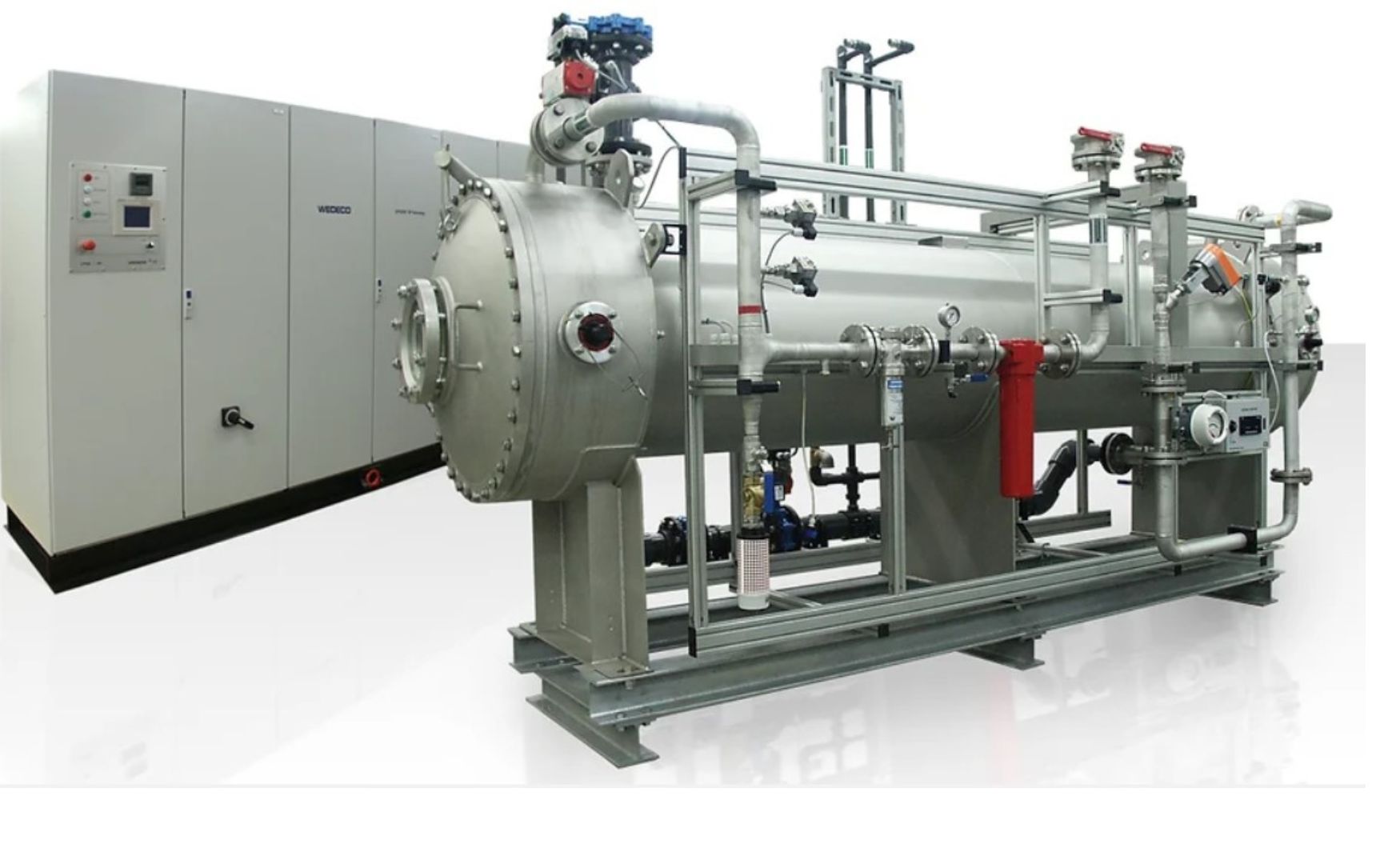
Foto: ALMA BHU Oxi (zum Produkt)
Neben diesen Verfahren gibt es auch Ansätze zur Rückgewinnung von Ressourcen aus dem Abwasser, wie beispielsweise die Phosphatrückgewinnung. Hierbei wird Phosphor, welcher in vielen Abwässern enthalten ist, gewonnen und wiederverwendet.
Energieeffizienz durch Wärmerückgewinnung und Stromerzeugung
Die Energieeffizienz in der Abwasserbehandlung ist ein wichtiger Faktor für die Nachhaltigkeit der Prozesse. Eine Möglichkeit zur Steigerung der Energieeffizienz ist die Wärmerückgewinnung und Stromerzeugung aus dem Abwasser.
Bei der Abwasserbehandlung fällt in der Regel Wärmeenergie an, die zum Großteil ungenutzt bleibt. Durch den Einsatz von Wärmetauschern kann die Wärmeenergie aus dem Abwasser zurückgewonnen und für die Beheizung von Gebäuden oder zur Erzeugung von Prozesswärme genutzt werden. Dadurch können erhebliche Energieeinsparungen erzielt werden.
Ein weiterer Ansatz zur Steigerung der Energieeffizienz ist die Stromerzeugung aus dem Abwasser. Durch den Einsatz von anaeroben Bakterien in Bioreaktoren wird biologisch abbaubares Material im Abwasser abgebaut. Dabei entsteht Biogas, das zur Stromerzeugung genutzt werden kann.
Wasserrecycling und Wiederverwendung
Eine der wichtigsten Strategien ist das Wasserrecycling und die Wiederverwendung. Durch diese Verfahren wird das Abwasser aufbereitet und für verschiedene Anwendungen wiederverwendet. Das spart nicht nur wertvolles Wasser, sondern senkt auch die Kosten und reduziert den Bedarf an Frischwasser.
Wasserrecycling ist ein Verfahren, bei dem das gereinigte Abwasser in den Produktionsprozess zurückgeführt wird. Dies trägt dazu bei, den Bedarf an Frischwasser zu senken und führt somit zur Senkung der Betriebskosten.
Um diese Verfahren zu implementieren, müssen Unternehmen in neue Technologien investieren, die dazu beitragen, das Abwasser effektiver aufzubereiten und die Wiederverwendung zu ermöglichen. Eine der am häufigsten verwendeten Technologien ist die Membranfiltration, die auf eine effektive Trennung von Feststoffen und Flüssigkeiten abzielt. Auch die Reverse-Osmose-Technologie wird häufig zur Aufbereitung von Abwasser eingesetzt.
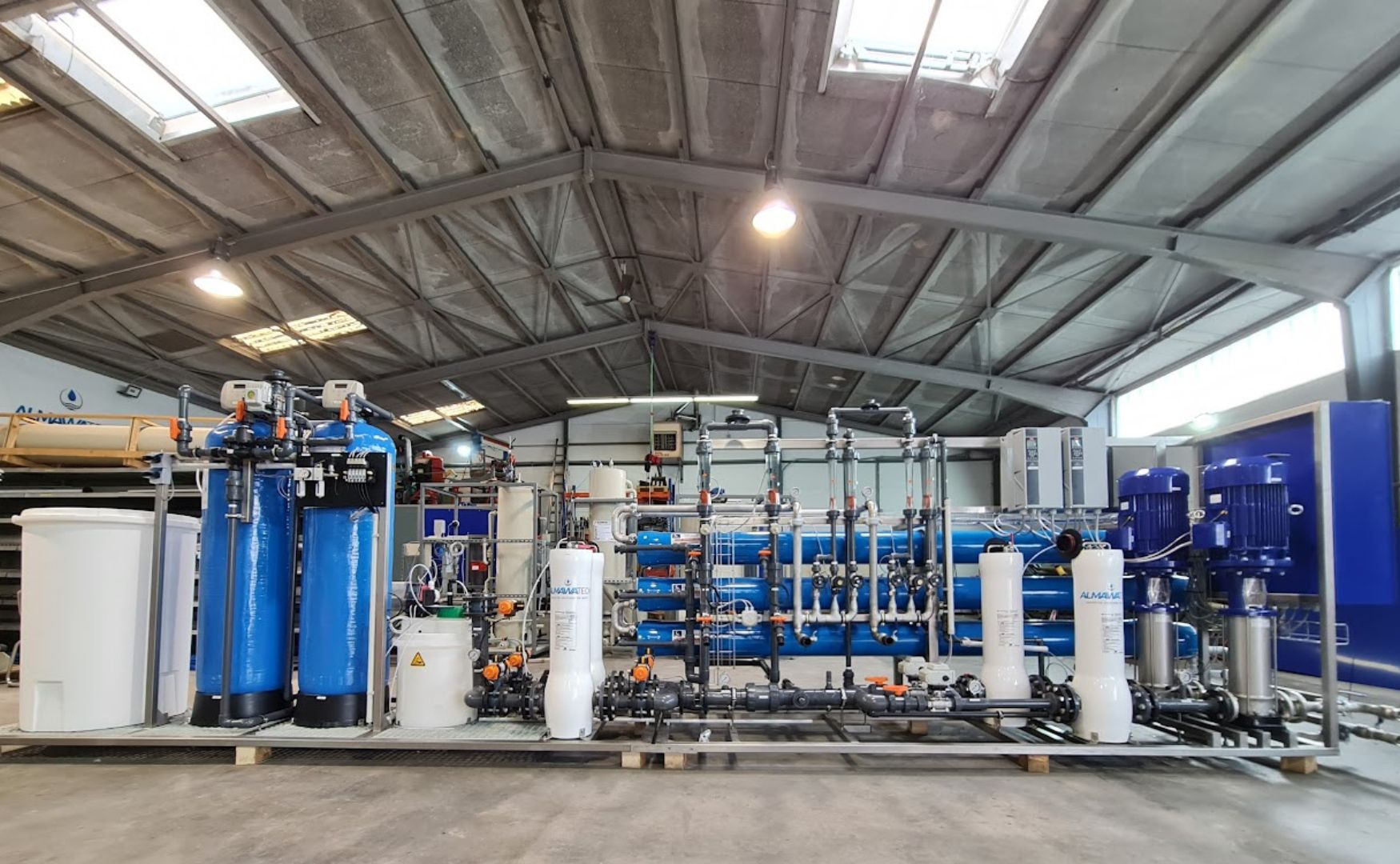
Foto: Unsere Umkehrosmoseanlage für das Wasserrecycling (ALMA OSMO Process)
Effektive Prozessoptimierung
Eine effektive Prozessoptimierung ist in der Industrieabwasserreinigung von entscheidender Bedeutung, um die Effizienz zu steigern, Ressourcen zu schonen und Kosten zu senken. Durch den Einsatz modernster Technologien und Prozessoptimierungsverfahren können Abwasserbehandlungsanlagen optimiert werden, um eine höhere Kapazität und Reinigungsleistung zu erzielen.
Eine effektive Prozessoptimierung beginnt mit einer umfassenden Analyse der Abwasserbehandlungsanlage. Hierbei werden die aktuellen Prozesse und Anlagenkomponenten untersucht, um Schwachstellen und Optimierungspotenziale aufzudecken. Im Anschluss werden gezielte Maßnahmen zur Verbesserung der Effizienz und Leistungsfähigkeit der Anlage eingeleitet.
Zu den Maßnahmen der effektiven Prozessoptimierung in der Abwasserbehandlung gehören beispielsweise die Überwachung und Steuerung der Abwasserströme, die Optimierung der chemischen Dosierung, die Verbesserung der Belüftung und die Anpassung der Abwasseraufbereitung an die spezifischen Anforderungen des Industriezweigs.
Fazit & Handlungsempfehlung
In Zeiten des Klimawandels und der steigenden Umweltbelastung ist es wichtiger denn je, Maßnahmen zu ergreifen, um die Abwasserbehandlung nachhaltiger und umweltfreundlicher zu gestalten. Hier sind einige Handlungsempfehlungen für Unternehmen in der Industrieabwasserreinigung:
- Einsatz von neuen Technologien: Innovative Technologien wie Umkehrosmoseanlagen oder Hochleistungs-Oxidationsanlagen können dazu beitragen, den Energieverbrauch zu reduzieren und gleichzeitig die Effizienz der Abwasserreinigung zu erhöhen.
- Wasserrecycling und Wiederverwendung: Eine der effektivsten Maßnahmen zur Nachhaltigkeit ist die Wiederverwendung von behandeltem Abwasser. Unternehmen können in halbgeschlossenen Kreisläufen arbeiten und somit den Bedarf an Frischwasser reduzieren.
- Effektive Prozessoptimierung: Durch eine regelmäßige Überwachung und Optimierung der Abwasserbehandlungsprozesse kann die Effizienz verbessert und der Energieverbrauch reduziert werden.
- Energieeffizienz durch Wärmerückgewinnung und Stromerzeugung: Unternehmen können Wärmeenergie aus dem Abwasser zurückgewinnen und zur Erzeugung von Strom nutzen, um so den Energieverbrauch zu reduzieren.
Als Unternehmen in der Industrieabwasserreinigung können Sie einen Beitrag zum Schutz der Umwelt leisten, indem Sie auf diese Empfehlungen achten und Maßnahmen zur Nachhaltigkeit ergreifen. Lassen Sie uns gemeinsam an einer sauberen und nachhaltigen Zukunft arbeiten! Kontaktieren Sie uns, um mehr über unsere umweltfreundlichen Lösungen für die Abwasserbehandlung zu erfahren.



